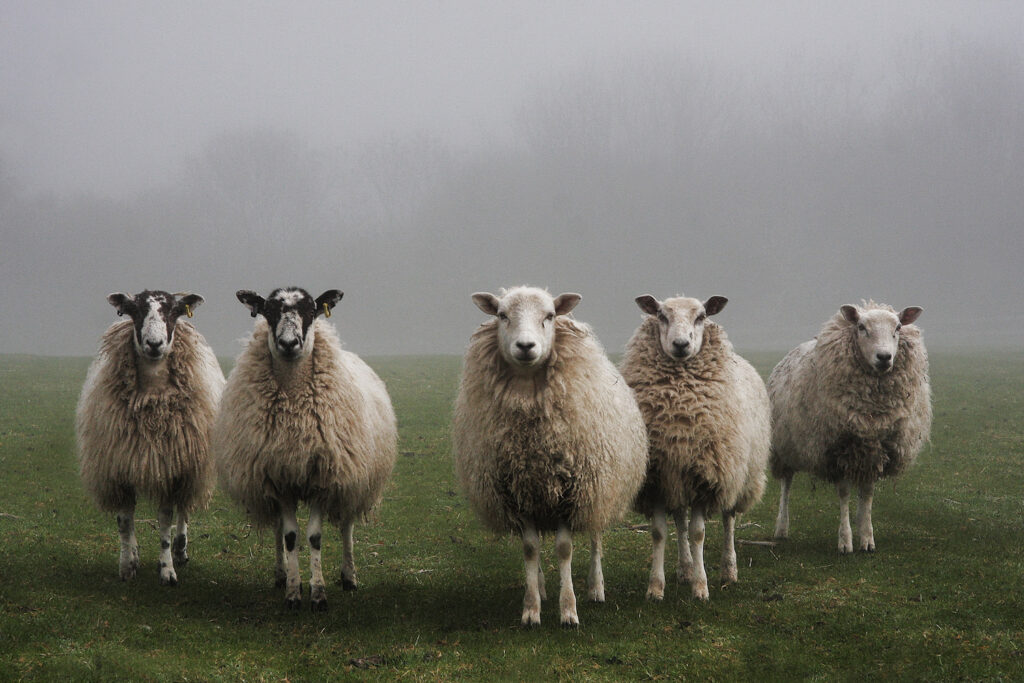Anger as “one-sided” UK-Australia trade deal is finalised
17th December 2021
UK farming organisations have hit out at the deal, claiming there is “extremely little” to benefit British farmers.
The UK has officially signed a trade agreement with Australia – the first to be negotiated from scratch since leaving the EU. It will now be laid before parliament for a period of scrutiny.
NFU president Minette Batters criticised the UK government for agreeing to Australian demands to time-limit safeguards for sensitive sectors.
Despite assurances that these sectors would be afforded some level of protection, we will see full liberalisation of dairy after just six years, sugar after eight years and beef and lamb after 15 years.
In addition, she said there are no safeguards for any products if imports reach damaging levels after the 15-year period is over.
The UK also agreed to beef and lamb quotas which favour imports of high value cuts, despite this being the end of the market where British farmers tend to derive value.
Ms Batters said it is difficult to discern anything in the deal that allows us to control imports of food produced below the standards legally required of British farmers – for example land deforestation for cattle production or systems relying on transport of live animals in a manner that would be illegal in the UK.
Soundbites “lost meaning a long time ago”
“Ultimately, this deal simply serves to heap further pressure on farm businesses at a time when they are facing extraordinary inflationary pressure and sustained labour shortages, an issue the entire food supply chain agreed needed urgent action at a cross-sector summit earlier this week,” she added.
“The government needs to level with farmers about the commercial reality of this and ditch the soundbites that lost any meaning a long time ago.”
She called for a detailed agri-food export strategy, with complementary policies that will enable UK farmers to compete and adjust. “We have seen some progress as the government begins to set out its export strategy, but much, much more is needed and implementing our three-point plan for getting farming ‘match-ready’ would be a good start.”
She concluded: “I hope that MPs will now take a good, hard look at this deal to see if it really does match up to the government’s rhetoric to support our farmers’ businesses and safeguard our high animal welfare and environmental standards. I fear they will be disappointed.”
“A long-term threat”
Similarly, NFU Scotland president Martin Kennedy said the deal seems to be “one-sided” with “little to no advantage for Scottish farmers”. He also criticised what he called a “complete dearth of proper consultation with farming and food sector interests across the UK”.
Mr Kennedy said the safeguards in place “simply delay the inevitable” – which is unfettered access for Australian producers to UK markets.
“This is an issue given the difference in production systems between Australia and the UK. Scottish and British producers operate to a completely different cost structure giving the Australian agricultural sector the comparative advantage of commodity production, to the point that transporting products across the world does not erode the price advantage.
“We understand that the main export focus for Australia at the moment is China, however should this change, the UK could be seen as an alternative and lucrative market with virtually no limits.”
There are further concerns that a trade with New Zealand has been agreed in principle on almost identical terms.
“These FTAs pose a long-term threat to key Scottish agricultural sectors, such as beef, lamb and dairy. This is heightened as so little has been done to ensure continuity and expansion of Scottish and British agri-food exports to new and existing EU markets,” he added.
“The recently setup Trade and Agriculture Commission (TAC) will now have the opportunity to scrutinise the deal in detail, however it remains to be seen to what extent the TAC can influence a deal that is already signed”.

The deal will see the Tariff Rate Quotas (TRQs) for lamb more than triple immediately, from roughly 8,000 tonnes annually to 25,000, and then grow over 10 years to 125,000 tonnes.
Anger among sheep farmers
National Sheep Association (NSA) expressed grave disappointment over the official signing of the deal.
When news of the agreement in principle was announced in summer, the association called for the use of a licensing procedure to manage seasonality disruption and the use of a whole carcase weight co-efficient to help manage high volumes of single and boned out cuts.
Chief executive Phil Stocker commented: “We have no confidence that this licensing procedure has been or is now being considered. We are told the deal still has to be scrutinised by parliament and TAC, but from recent experiences we can be sure this will be a formality rather than an opportunity for positive amendments to be made.”
The deal will see the Tariff Rate Quotas (TRQs) for lamb more than triple immediately, from roughly 8,000 tonnes annually to 25,000, and then grow over 10 years to 125,000 tonnes. At current consumption rates that is equivalent to more than 40% of the UK’s total sheepmeat needs.
Mr Stocker addded: “NSA warned from day one that the UK sheep sector could end up being the sacrificial lamb for the benefit of other industries in a trade deal with Australia, and indeed New Zealand.
“I’m confident the British sheep industry is in a fit enough state to fight back when we have to, despite our standards being ratcheted higher and higher (many of which carry costs). And fight we will do, in order to maintain domestic support for our high-quality products and to access other global markets.”

